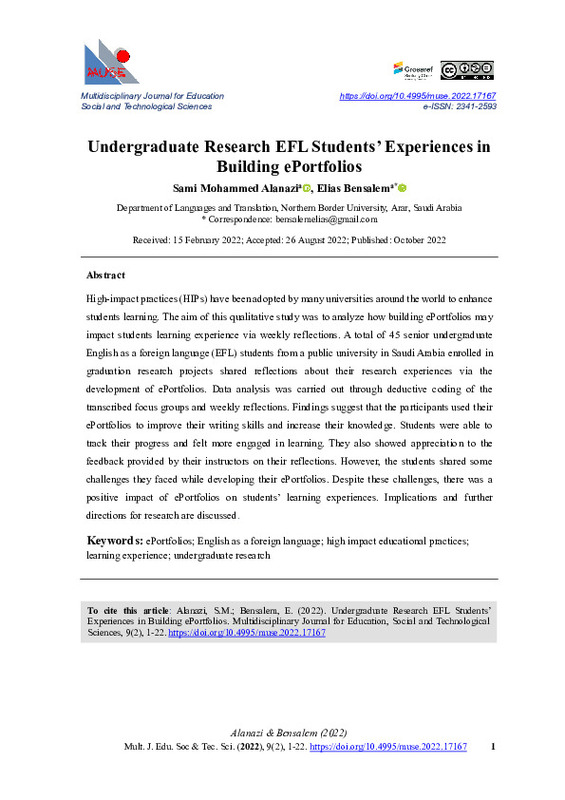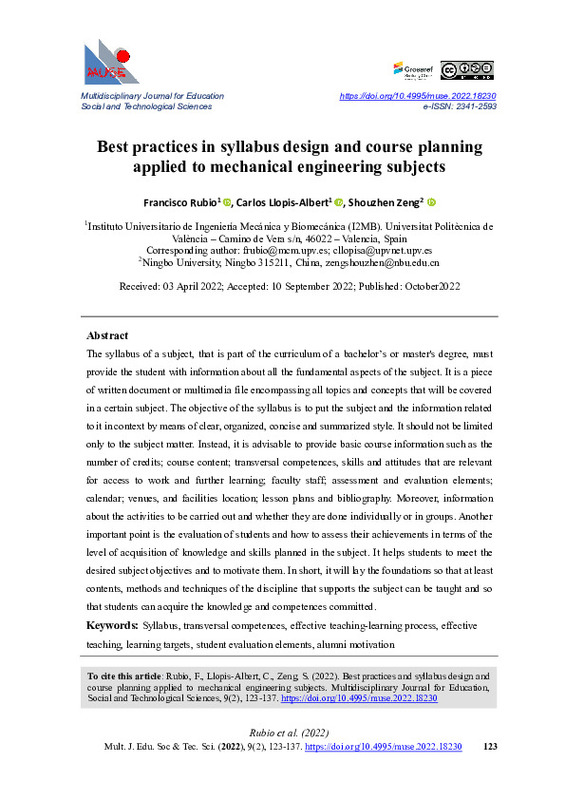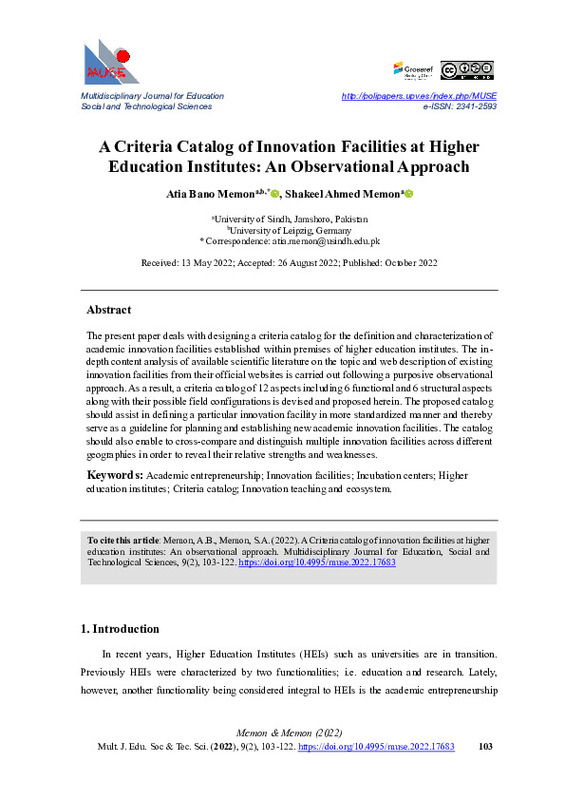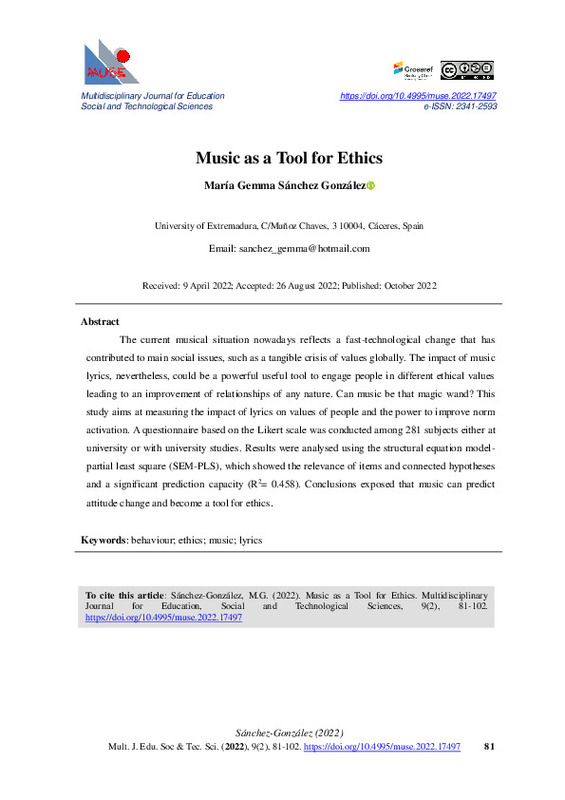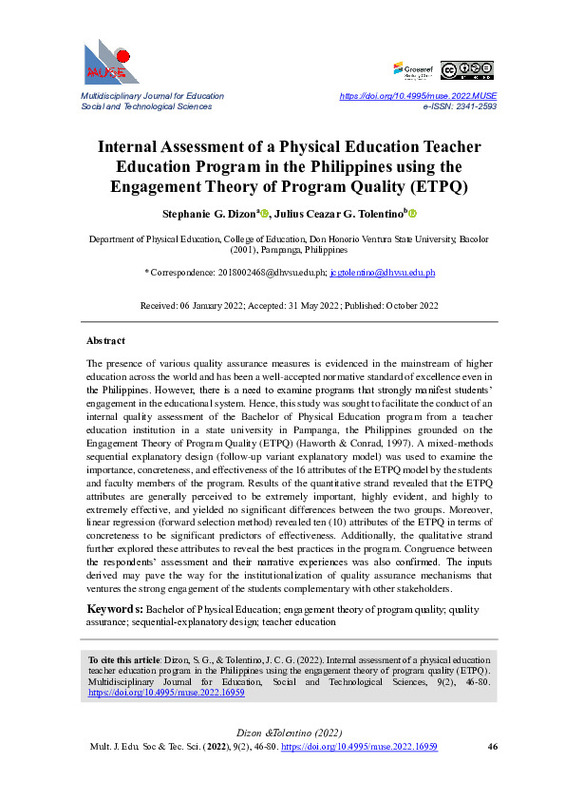- RiuNet repositorio UPV
- :
- Investigación
- :
- Material investigación. Editorial UPV
- :
- Revistas UPV. Editorial UPV
- :
- Multidisciplinary Journal for Education, Social and Technological Sciences
- :
- Multidisciplinary Journal for Education, Social and Technological Sciences Vol. 09, Núm. 2 (2022)
JavaScript is disabled for your browser. Some features of this site may not work without it.
Refinar
Desde el lunes 3 y hasta el jueves 20 de marzo, RiuNet funcionará en modo de solo lectura a causa de su actualización a una nueva versión.
Multidisciplinary Journal for Education, Social and Technological Sciences Vol. 09, Núm. 2 (2022)
Tabla de contenidos
Artículos
- Undergraduate Research EFL Students’ Experiences in Building ePortfolios
- Working on Critical Thinking skills using the computer lab works of an Engineering subject
- Internal Assessment of a Physical Education Teacher Education Program in the Philippines using the Engagement Theory of Program Quality (ETPQ)
- Music as a Tool for Ethics
- A Criteria Catalog of Innovation Facilities at Higher Education Institutes: An Observational Approach
- Best practices in syllabus design and course planning applied to mechanical engineering subjects



